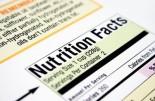Search Podcasts
Dr. Roizen: The Hidden Dangers of Red Meat
Wednesday, 22 April 2015A few weeks ago (March 30) the New York Times Had an Op-Ed entitled "Red Meat Is Not the Enemy." I discussed the problem with red meat on YOU: The Owner's Manual Radio Show the following weekend.
This week, a person who wished to remain anonymous sent me a follow-up question on why I still avoid red meat. Here is the gist of my reply to her, and also to another person, who also asked the question (that "other person," by the way, is the ping-pong opponent who often beats me and claims his ping-pong prowess comes from his red meat eating habit)...
Show me red meat that has no carnitine, lecithin, or choline -- the inflammation-causing proteins that constitute it -- and I will agree with you.
Dr. Roizen's Do-Over Tip: Learn About Your Biggest Sex Organ... Your Brain
Monday, 09 February 2015Want some simple ways using diet, exercise, sleep, stress management and sex to revitalize your life now and for the vital years on the horizon? Dr. Roizen has them... in his new book, This Is Your Do-Over, he explains how to reverse your mistakes, optimize your health, and live a life filled with energy and happiness. After all, nobody is too old, too out of shape, or too unhealthy to start their Do-Over today.
Dr. Roizen's Do-Over Tip for the Week: Learn About Your Biggest Sex Organ... Your Brain
Oftentimes middle school health class is where we learn all the basic biology about how our bodies work; specifically, what part goes into what part, with the outcome of extending the survival of our species. I’m not condemning sex-ed classes for doing this dutiful job; but, I also want to point out that too often these classes seem like they’re making the case that sex is about plugs and sockets, in and out, penis and vagina… that sex is about what goes on below the belt.
That, we know, is 100 percent biologically true. Can’t make babies without plugs or sockets.
But, I also think that we take that truism and hold onto it as if this law of biology is the only sexual scientific fact there is. The real truth is -- especially when you grow older and your hormones aren’t the only things that make your primal sexual decisions -- that the more important relationship isn’t groin to groin.
It’s brain to brain.
Do-Over Tip from Dr. Roizen: Love the Foods You Wish You Did
Monday, 09 February 2015Want some simple ways using diet, exercise, sleep, stress management and sex to revitalize your life now and for the vital years on the horizon? Dr. Roizen has them... in his new book, This Is Your Do-Over, he explains how to reverse your mistakes, optimize your health, and live a life filled with energy and happiness. After all, nobody is too old, too out of shape, or too unhealthy to start their Do-Over today.
Dr. Roizen's Do-Over Tip for the Week: Love the Foods You Wish You Did
You know that double fudge caramel ice cream you’ll tearfully refuse on Monday and then eat a full pint of on Tuesday? Or that jumbo 20-serving bag of popcorn that you might maybe sometimes accidentally eat in one sitting—but just because you skipped lunch and picked at a tiny teeny yogurt cup for breakfast? This is your opportunity to retire those moments: consider yourself released from the torture of deprivation. (And please make sure you eat both breakfast and lunch!)
You might be thinking to yourself, this sounds suspicious… we are talking about giving up our most favorite fatal foods, right? But bear with me.
And seriously, this will only work if you make sure not to starve yourself. Not only does skipping meals strongly promote overeating later on as our bodies crave energy-dense and often non-nutritious foods, but it also causes your body to shut down into starvation mode, clinging for dear life to any fat it’s got. Just say no to starving yourself. It also makes you sad. Don’t do it.
Do-Over Tip from Dr. Roizen: Share Some Warm Fuzzies
Monday, 09 February 2015Want some simple ways using diet, exercise, sleep, stress management and sex to revitalize your life now and for the vital years on the horizon?
Dr. Roizen has them... in his new book, This Is Your Do-Over, he explains how to reverse your mistakes, optimize your health, and live a life filled with energy and happiness. After all, nobody is too old, too out of shape, or too unhealthy to start their Do-Over today.
Dr. Roizen's Do-Over Tip for the Week: Share Some Warm Fuzzies
Do something nice (and unexpected) for someone in your life, or even a stranger! Be creative. Do it “just because.”
In 2014, sociologists from Notre Dame University published The Paradox of Generosity, a book based on a study of over 2,000 individuals tracked over five years from a range of socioeconomic classes and races. They found that Americans who met measures for being generous were “generally more compassionate, forgiving, in tune with others’ needs, empathetic, and more likely to see the world in terms of abundance.” And get this: giving of your time, your money, and your emotional self all significantly increase not only your happiness, but also your physical health.
The Biggest Success of the Proposed Nutrition Facts Label: Added Sugars Will Mean Less Chronic Disease & More Jobs For America
Sunday, 16 March 2014
The United States Food and Drug Administration's (FDA's) proposed changes to one of the most iconic, well-recognized designs to all Americans, were presented by First Lady Michelle Obama Thursday.
The changes are much more than a new design and adding a few numbers to the panel.
From a broader perspective, the FDA's proposed changes reflect a shift in the chance that health care changes in the future will be a tailwind rather than a headwind to American jobs and prosperity. After 30 years of US obesity rates climbing, there is a shift towards creating solutions that are in favor of American consumers, rather than the powerful food industry.
The FDA estimates that the changes will mean a one-time cost of $2.3 billion to the food industry for labeling, reformulation, and record keeping, plus small annual costs for recurring record-keeping. However the FDA also predicts that over the next 20 years, these changes will save an average of $21.1 billion to $31.4 billion in healthcare costs.
Two key changes : Calories per container and per more accurate portions and Added Sugars.
5 Keys to Living a Long, Healthy, Happy Life
Thursday, 06 February 2014Last week the U.S. Centers for Disease Control and Prevention (CDC) released a report that found American's life expectancy has yet again increased for both men and women. Individuals born in 2009 can expect to live longer than ever before - approximately 78.5 years, up from just 78.1 years one year ago.
A gain of more than a third of a year in just one year. At this rate, this might be interpreted to mean the 30 year old person (in 2010) making healthy choices who would have been estimated to live to 95 in 2010, would make it to 115+ by the time she is 90 in 2070.
Since the data were collected and analyzed, life expectancy has increased even higher to 78.7 years, according to the CDC website, in-line with this potential. But will these be healthy vibrant years. Yes, you can make them that.
Thanks to improvements in medical technology for treating heart disease and stroke, Americans are living longer lives than ever before. The downfall of these technologies is that while they are able to buy a few extra years, they are not necessarily providing quality years of health and wellbeing.
Prevention is needed to do that.
Would Knowing Your Chance of Dying Early Change Your Behavior?
Monday, 18 November 2013Would 51-year-old James (Tony Soprano) Gandolfini or Tim ("If it's Sunday, it's Meet The Press") Russert be alive today if their docs had followed the new cardiovascular disease prevention guidelines just issued by the American College of Cardiology and American Heart Association?
This week, we asked that question to many of the docs with whom we work at the Wellness Institute. We just do not know enough about Gandolfini or Russert; however, you know enough about YOU—that's the key. And the likelihood is Gandofini and Russert both would have been taking statins if their docs had followed the new guidelines...and aspirin and exercising, losing weight and changing their diets (and Russert and Galdofini weren't doing food –perhaps the most important choice—right if observations and news reports are correct.) You might too—and we want you to stay alive.
Bitter Truth About Sugar: It Makes Cancer Grow
Tuesday, 10 September 2013Sugar - sweet to your taste buds but perhaps toxic to your body and your proteins. Just because your taste buds approve, does not mean that the rest of your body will too. Sugar is like your awful ex who was charming at the beginning of the relationship but made your life miserable by the end. Sugar works in the same way - it can easily win your taste buds over, leaving the rest of your body to suffer with the consequences.
Previous studies have shown that a high sugar diet increases the risk of hyperglycemia, hyperinsulinemia, and insulin resistance, but the damage does not stop there. In fact, sugar does much worse things to your proteins. Two separate studies published in August 2013 suggest that sugar is also associated with an increased risk of cancer, mortality, and lower sexual health.
Read The Label: The Gluten-Free Reality
Saturday, 17 August 2013Seeing the words "gluten-free" stamped onto a box of cookies, crackers, or Twinkies is not a green light that sends you on the road to healthier living. Now that the availability of gluten-free junk foods is legitimized by appearance in "common" large grocery chains, and product offerings expanded faster than waistlines, misinformation about these allergy-friendly foods is increasing.
Oh yes, large packaged food companies are listening to the siren scream of customers for more gluten-free foods choices. But like much in the past history of food companies' service of public wants, it's demand begetting inferior (from a healthful perspective) supply. As more shoppers load their grocery carts with gluten-free pretzels and pasta, grocery suppliers and stores expand their gluten-free aisles. According to a survey conducted by the NPD group in January 2013, approximately 30% of adults in the United States reported trying to reduce or exclude gluten from their food intake.
Despite the fact that a gluten-free diet is beneficial only to folks allergic or intolerant to gluten, many perceive gluten-free foods to be healthier and associated with weight loss. The real truth: gluten-free does not equal sugar free, healthful, skinny, or low fat. In fact, gluten-free foods often are less healthy and more expensive than their healthier, less sugared, whole wheat counterparts. You need to do what is best for your health and your budget—so here's the gluten-free 411.
What Can George W’s Stent Mean To You?
Tuesday, 06 August 2013The Presidents' arteries, and what it means for you and yours.
George W had a positive stress test and received a stent to open up one (or was it more—we do not know) of his coronary (heart) arteries.
Was the stress test appropriate, and was the stent needed? Or could food choices have changed the need?
George W isn't the first President with arteries that show aging and plaque. Clinton's did. So did Reagan, and Ike and Harrison and Roosevelt's times two, and maybe every President. Just look at Obama's hair, or Bill C's heart arteries before he radically changed his diet and stress levels - or you can look at Ike or Harrison or - chose any President - it is a job laden with aging stress.
Did You Know? You Probably Underestimate Calories When Eating Out
Sunday, 09 June 2013Recently on the YOU The Owner’s Manual Radio Show, we featured a top medical story about how to prevent 80% of chronic disease. It related to food choices and portion size.
Wait! Don’t stop reading!
It really does get more interesting, because if each of us paid as much attention to restaurant menus as some my friends do to NBA scoring, we could save 600 billion a year at least. A year!
That would make North America as competitive for jobs as for energy independence. You’d be patriotic. And we are being helped. Most fast food restaurants have added an additional column of numbers on their menus. The new column contains the calorie content of the food items. However, apparently not too many people have taken an interest in the new information provided to help Americans get healthier.
A new study published in May 2013 highlights the ineffective attempt to encourage people to moderate calories. Nearly 2/3 of adults, adolescent, and school age children underestimated the number of calories in their fast food meal....and not by a little.
Why Red Meat & Carnitine May Kill YOU
Sunday, 21 April 2013From a recent behind-the-scenes discussion about red meat on YOU The Owner’s Manual Radio Show:
I said "It’s changing your microbiome." "Your What?" she said. "Your Microbiome, or the bacteria inside you." "Ugh" she said "That’s disgusting." "Maybe" I said, "but there may be something you could take or just avoiding it that could give you more energy for many years, as well as keep you healthy, and that’s invigorating."
You see, on a recent radio show, a guest with great expertise in this area, Adam Bernstein, MD,SciD, reviewed the hazards of eating red meat - and, yes, pork and bacon are red meats - a 20% increase in risk of stroke and type 2 diabetes for every 4 ounce portion you have a week. That is a doubling of risk for 5 servings (or one big portion, if you eat big at a place like Morton’s or The Heart Attack Grill. Yes, there is such a place).
Yes, you are literally committing suicide by eating red meat.
The Best Job Creation Program is also the Best Tax reduction Program, and Ohio is Proving it in Reverse
Sunday, 07 April 2013But even Ohio, like you, gets a do-over.
Let’s see if Governor Kasich really cares about jobs for Ohio, and tax reduction for its citizens and businesses.
The largest cost increase that is causing the largest need for increased taxes in Ohio, is the removal by prior Governor Strickland of the 40 million for tobacco prevention in Ohio. I live in Ohio and work at the Cleveland Clinic, so I really care about Ohio.
Since this move, Ohio spends less for tobacco prevention than any other state.
The Result? We have gone from 20.2 % smoking rate for adults in our state in 2009 (similar to the national average) to 25.4% now, while the rest of the USA has fallen to 19.2% (CDC data from every two year surveys).
Each smoker costs about $2000 more per year in direct medical costs.
Roizen Rule for a Younger YOU... Don’t Take That Receipt Unless YOU Absolutely Need It
Thursday, 04 April 2013We’ve talked frequently on YOU The Owner's Manual Radio Show about the feminization of male tadpoles when exposed to ponds with plastic bottles made with BPA.
BPA is a plasticizer common in baby bottles in the plastic baby bottle era of 1970 to 2008, and is common in thermal receipts.
It acts to disrupt testosterone function and maybe to mimic estrogen. Those changes are thought to be very powerful: it appears male infants function with certain brain structures more like females - more of the FOX2 protein, which leads to more chatter (I kid you not) when the mom has a high blood level of BPA during pregnancy. And more asthma in such children too.
Now something even more serious.
Exposure to bisphenol A (BPA) and it’s cousin BPS in the womb or as an infant increases the risk of childhood learning disorders, by changing the function of a gene important to learning in kids (and even us adults.)
These genes produce a protein that gets chloride out of cells. Not enough chloride out, poor development of connections, which means poor learning.
Small amounts of BPA and BPS seem to interfere with brain development by blocking these genes.
Even worse, maybe this endocrine disruptor is responsible for some of the substantial increase in autism in the last two decades.
The Forbes Gang on Fox Knows Nothing (about Medical Costs)
Monday, 18 March 2013I know so little, that I think they are “gods of finance”. But when they talked about medical costs recently, they knew so little and had their facts so confused, that I thought they must be shills for that true, but unrelated to the real problem, 16 page piece on medical costs in Time Magazine.
How could the Forbes and Fox gangs have it as wrong as Time did, when their own newspaper (Murdock run, like Fox) pointed out the folly of the Time piece? The Forbes gang just didn’t give it to you straight on this topic…and it makes me wonder …should I stop watching them on Saturday mornings? Maybe just watch the recorded Oz shows, instead?
Let's get it straight.
Seas of Deception: Buying Healthy Fish
Monday, 11 March 2013There are three new headlines (and the rest of the stories we tweeted about in the most recent YOU The Owner’s Manual Radio Show), that juxtaposed perfectly with our most recent great guest, who is the author of The Alzheimer’s Prevention Cookbook.
The headlines I'm talking about are:
1. Alzheimer's fastest-growing health threat in USA, report says
2. Mediterranean Diet can prevent over 30% of strokes (brain loss) in already optimally managed patients
3. Survey Finds That Fish Are Often Mislabeled
The synergy here is interesting.
Trying To Get Pregnant? Pick A Partner Who Isn't Sweet Smelling
Wednesday, 13 February 2013Let's say you or a friend of yours is trying to get pregnant - after all it is fun and patriotic (more on that below).
Let me give you some hints on how to make this happen:
1. Exercise with your partner
2. Pick a partner that doesn't watch TV sitting
3. Avoid Frenchmen or those who use aftershave (and men, you'll want to avoid women who have this chemical in their cosmetics or perfume)
Yes, three new research studies came out - that we talked about on YOU The Owner's Manual Radio Show (you do listen live or at least on podcast...live 5-7 pm every Saturday; podcast anytime at RadioMD.com - on each show we cover the most important medical stories of the week, and what they mean for you).
In the first, couples who exercise together regularly report better and more frequent sex. You may not like to see sweat on treadmills, or on public speakers, but you apparently get turned on by it, and want to see it on your honey, even if you don't think so.
Exercise stimulates the production of make-you-happy brain chemicals, and increases your libido and your feelings of arousal. (Even I get aroused watching my Nancy exercise.)
The Love Hormone & Sports: How to Be Better in Bed & on the Field
Thursday, 20 December 2012You guessed it - according to their Nike advertisements, it's their love for the game of basketball - they love it irrationally and unconditionally - meaning independently of other benefits.
As an enthusiastic spectator of many sports and player of one or two (I captained the US squash team in its inaugaural foray into the Pan American games), I enjoy seeing the dedication of athletes and am always amazed by the sweat and tears left on the court and in the stands afterwards. So, why do fans get so wrapped up in the team's performance?
We talked about the science of this on the YOU The Owner's Manual Radio Show during the 11-24-2012 program...but here's the summary: What fuels an athlete to give 110% effort is more than making bank, or being famous. The fame and cash flow aren't too shabby for many of the professionals, but we all know that money can't always buy happiness.
Whether athletes are playing under the spotlight or at the neighborhood courts, sports competitions trigger the release of something much deeper to humans - oxytocin, the love or cuddle hormone that's released by couples in love and by mom's in tremendous amounts during early bonding with their newborns.
5 Normals: Why The Cleveland Clinic Pays It’s Employees to Get ‘Em And Why ObamaCare Should Consider Doing So
Friday, 23 November 2012Let me tell you the background, our healthcare costs are twice developed Europe's and four times those of Mexico, China, India and Japan only because we have twice the chronic disease of Europe and four times that of MCIJ. Your choices, not your genes cause that. Almost our entire deficit (actually it is our entire deficit but that seems outrageous, but is actual) is caused by our lifestyle choices and their effect on Medicare, Caid, Federal and State direct healthcare costs (for employees, retirees etc).
Arsenic in Rice
Thursday, 25 October 2012Now another food that is contaminated with arsenic.
On average, a typical North American Adult (USA and Canada data) consumes 25 pounds of rice per year—that’s a lot of rice! Rice is a staple grain in the American diet that is typically touted for being healthy. Recently, however, rice has been under the microscope for possibly being toxic. Shocking headlines released in recent news highlighted new data on arsenic levels in rice, causing all of us to question—is the grain safe to eat?
Reports on the matter provided conflicting messages. Some suggested consumers temporarily stop eating rice while others recommended limiting daily portions. Which is best for YOUR health? This blog should help you answer these questions for you and your family.















